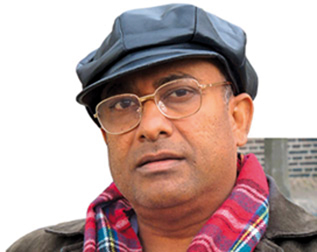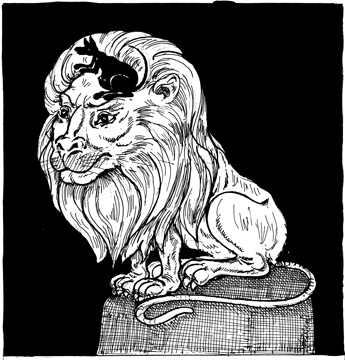|
Black Australian:
A Sri Lankan Australian Novel
By Ranga CHANDRARATHNE
 |
|
Sunil Govinnage |
As a special segment of Montage, dedicated to promoting and
propagating English literature written by our expatriate writers with
the objective of introducing new Sri Lankan English writings, Sunday
Observer will serialise a previously unpublished novel by Sunil
Govinnage, a Sri Lankan born, bi-lingual expatriate poet and writer who
is now domiciled in Australia.
Following is an analysis of the novel.
The novel portrays the life and the journeys of a Sri Lankan born
Australian with his roots in rural-urban background. The main
protagonist with a long Sri Lankan name faces trials and tribulations in
various cities in Australia and elsewhere due to his global roamings,
and confusion of his cultural identity. As a result, he is being
identified also as a 'Black Australian' in Europe. On another occasion
he himself assumes this 'outsiders' identity displaying a hybride
diasporic life evolving in Australia. Some of his travels take him to
European cities such as Amsterdam and also to the paradise island, The
Mauritius in the Indian Ocean.
The novel covers a significant part of the protagonist, Vidana
Pathiranalage Siripala Wickramasinghe's journeys in Australia from the
far off Cairns in Queensland to Australia's Kimberley Region in the
North West. In his travels, Siri meets, Aborigines, local fellows, Sri
Lankan expatriates and some strange characters who are not previously
represented in Sinhala or English writings of Sri Lankan origin.
In some respect, Siri Wickramasinghe who hails form a rural Sri
Lankan village has no firm roots even in his native country because of
his teacher parents' movements into various parts of the Island.
However, they finally settle down in a small village near Kurunegala
which he frequently visits to see his mother after his father's death.
Siri lived in Sri Lanka until he completed his university studies
except for a period of nine months when he studied as a high school
student under an Australian scholarship in Western Australia where he
moves into settle down in the mid 1980s. He also meets his future Sri
Lankan wife, Rajini, a Sri Lankan born Tamil accountant who grew up in
Melbourne in Perth. After a brief and happy life, their marriage breaks
down partially due to political, cultural and personal
incompatibilities.
Govinnage sketches the Australian scene dexterously. On his first day
at work Siripala Wickramasinghe is told that his name sounds funny and
with typical Aussie insouciance it is suggested that he shorten his name
to Singh. When he protests that this might make him sound a Sikh he is
informed that there is a Tamil called Frank because that is what his
wife calls him although his real name is Bala. The upshot is that the
name is shortened to Siri, Aussie being great people at shortening names
although Wickramasinghe, of course, is a bit of a mouthful.
-Ajith Samaranayake
Sunday Observer |
Ajith Samaranayake reviewing Govinnage's short stories in Sunday
Observer made the following observation about the plight of the
protagonist of the novel:
"Govinnage sketches the Australian scene dexterously. On his first
day at work Siripala Wickramasinghe is told that his name sounds funny
and with typical Aussie insouciance it is suggested that he shorten his
name to Singh. When he protests that this might make him sound a Sikh he
is informed that there is a Tamil called Frank because that is what his
wife calls him although his real name is Bala. The upshot is that the
name is shortened to Siri, Aussie being great people at shortening names
although Wickramasinghe, of course, is a bit of a mouthful.
The tone here is light but the story has an ironic edge. The Aussies
don't care for Wickramasinghe's lineage but as he tries to explain to
the puzzled Darryl any other Sinhalese would know from his name what his
origin is, the fact that he is not a Tamil, and even his caste. But the
whole point is that if Siri is to become integrated into Australia he
will have to shed that whole race-caste baggage he has brought from Sri
Lanka. In 'The Black Australian' Siri in Amsterdam allows himself to be
mistakenly identified as a Black Australian although he is no Aborigine.
But then who is he?"
The novel consists of 14 standalone chapters and they describe Siri's
life and travels providing deep and sharp insights into the expatriate
Sri Lankan life styles in a global context. One unique feature in the
novel is the coverage of various unexplored geographical terrains as an
integral part of the narrative discourse.
A version of one of the early chapters of 'The Black Australian' was
completed in 1997 and was read at the 'Eighth Biennial Symposium on
Literatures and Cultures of the Asia-Pacific Region' held in Perth in
December 1997. This chapter was later included in Govinnage's first
short story collection 'Black Swans and Other Stories' published in
2002. Another chapter of the novel based on Siri's travels in Sydney
appeared in the prestigious journal 'Postcolonial studies' (vol 8 Issue
1) in 2005.
Commenting on Govinnage's short prose, Sydney based Australian
academic Stephen Muecke writes:-
I like to think of Sunil Govinnage as a writer of the Indian Ocean ,
rather than having to think about him in terms of national identities,
like Sri Lankan, Australian or even a sub-identity like black
Australian. He is, after all, a resident of Perth, a city lapped by the
ocean whose currents and winds link him to his place of birth. Also, the
experiences reproduced in his writings transcend national boundaries,
which is why I would join Wimal Dissanayake in evoking globalisation as
one of the 'life conditions' under which his texts have emerged.
A figure of one of the many diasporic populations moving around the
world, we find our narrator, for instance in Amsterdam, treating the
conundrums of mistaken identity with irony, an irony which has a
transcendent function: it shows the wisdom of laughing one's way out of
identity politics and its endless assertions of the special case.
Which is a long way of saying, read before identifying! Don't trust
the author to match up to your expectations. This, now, is-your-text to
do something with, it will give you endless avenues for thinking,
feeling and being.
You can stroll along these avenues enjoying the breezes of the Indian
Ocean bringing flavours and perfumes of South Asia to these shores, and
yet so much more; an intensity of experience and a tenderness of
perception which make Sunil Govinnage one of the most unique and
compelling writers to emerge-from anywhere-in recent years.
- Stephen Muecke, Professor of Cultural Studies, University of
Technology, Sydney
 Though written in short plain and lucid English, Govinnage's poetic
diction has emerged in his maiden novel. We quote a brief passage which
describes the end of Siri's journey to a famous beach resort-Cable
Beach-in Broome, Western Australia. Though written in short plain and lucid English, Govinnage's poetic
diction has emerged in his maiden novel. We quote a brief passage which
describes the end of Siri's journey to a famous beach resort-Cable
Beach-in Broome, Western Australia.
When the dusk started settling, the blue sky which was visible as a
part of the heaven began changing its colours. The azure blue mixing
with pale red and purple colours stretched into the deep corners of the
horizon.
The leader of the camel ride - a man who wore a white shirt and a
pair of black shorts - led another brief journey without giving any
directions. The tired camel herd were carrying happy tourists whose sole
aim was to collect happy memories.
The visiting tourists wanted to carry as much memories as
photographic images from this fascinating part of the earth. As the
signs of hooves of tired animals disappeared on the foreshore, Siri hung
onto a camel's hump on his own, and watched other happy tourists in
pairs going down the Cable Beach.
He reflected on their journey-mere vanishing shadows on the beach,
moving slowly forward, but as an impossible race against the inevitable
dusk. In some respect Govinnage's English writings could influence our
younger writers in many ways. Govinnage's exposure to literature began
at the age of five when he read a Sinhala translation of Hans Christian
Anderson's 'Snow Queen.' Sunil says: "I taught myself English when I was
17 years old; it was not hard, but it is a language that I'm still
learning!"
We hope this novel will provide some unique aspects of a new
generation of Sri Lankans who are becoming a large portion of global
citizens who called more than one country a home.
|

